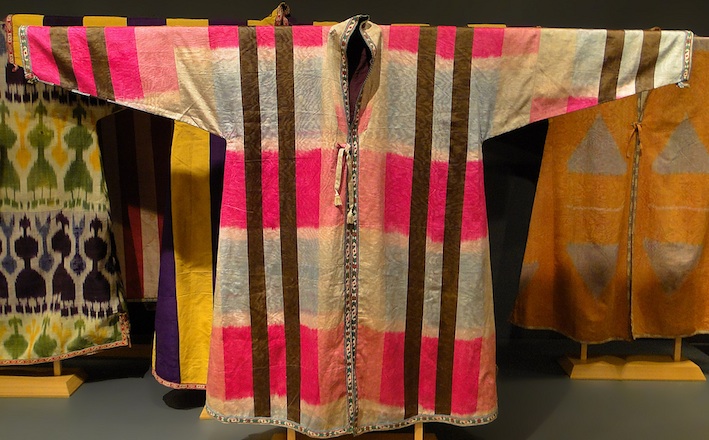Commentary on Isaiah 25:1-9
Isaiah 25 celebrates divine faithfulness in soaring, lofty words, words too lofty for everyday reality.
Yet they inspire hope. Hymns of thanksgiving stand on either side of a prophetic description of a universal banquet hosted by God “on this mountain,” that is, on Mount Zion, where the temple stood.
The chapter begins with a communal hymn of thanksgiving for God’s deliverance from tyrants. The hymn gathers themes and language well known from the rest of Isaiah. The wording “plans formed of old, faithful and sure” recalls the divine plan, a frequent theme in Isaiah (see for instance Isa 5:19; 14:26; 19:17; 28:29; 30:1): the prophet claims that God’s plans, not those of political humans, will come to fruition.
The hymn also recalls language of faithful steadfastness that is found especially in prophecies surrounding the international crises faced by Ahaz and Hezekiah (see 1:21, 26, 7:9, 11:5, 28:16). The term “tyrant” is repeated three times in three verses (3, 4, 5). In Isaiah 13:11 and 49:25, Babylon was the tyrant. Here the lack of specific referents conveys the cycle of threat and deliverance recurring frequently in history, though the players may change. Hope is expressed here of final, decisive deliverance from tyranny.
Another theme prominent in this hymn that is familiar from earlier parts of Isaiah is the imagery of refuge found in verses 4-5. Here God acts, as in the Psalms, as “shelter” and “refuge” for the poor and needy (Psalms 14:6; 27:1; 28:8; 37:9; 46:1, etc.).
In the previous chapter, Isaiah 24, God was seen inaugurating divine reign on Mount Zion, attended by elders who saw God’s glory. This image harked back to the tradition in Exodus 24, in which seventy elders were invited with Moses, Aaron, and Aaron’s sons to see the God of Israel on Mount Sinai, and to eat and drink in God’s presence, just before the stone tablets containing the commandments were given to Moses.
The only major element missing from Isaiah 24:23 was the meal. But here in 25:6 it appears in detailed glory. It is no longer on Mount Sinai, but on “this mountain,” Mount Zion. God prepares this banquet not only for the leaders, not only for the chosen people, but for “all peoples” and “all nations” — the word “all” occurs five times in three verses.
Here it is God who plans and serves the menu, described as very rich food and wine: choice wines, strained clear; sumptuous meats. Food is rarely described at length in Scripture; in fact, in prophetic books, descriptions of foods and banquets often accompany criticism of debauchery. In Isaiah 24, the wine had all dried up, along with mirth and joy. But here food, drink, and delight return on God’s terms, not as an occasion for social oppression, but in a spirit of celebration and harmony hosted by the one who created all foods. Mourning clothes are no longer needed, since the people are comforted. As they eat, God “swallows” both the shrouds (verse 7) and death itself (verse 8). Victorious over that most persistent foe, God wipes tears from all faces.
This “swallowing” recalls the story of the Canaanite god Baal found in the Ras Shamra texts at Ugarit. There the underworld god Mot (“death”) either swallows Baal or threatens to swallow him (the text is unclear), but is defeated. Their battle recurs year after year in the seasonal alternation between drought and fertility. Distinct differences from the Baal story appear in this biblical poetry: it is God who swallows death rather than the reverse, and this victory is not subject to repetition, but is sustained forever.
This verse does not yet reflect belief in the resurrection of the dead, which will come many centuries later. However, Paul employs it in his description of resurrection in 1 Corinthians 15:54. It is also paraphrased in Revelation 21:3-4. The grateful hymn that follows in verses 9-10a echoes the vocabulary of numerous Psalms (see for instance Psalms 35:9; 130:5; and especially 118:24).
The vision of the eschatological banquet hosted by God articulates some of Judah’s highest and most inclusive hopes for sharing its theological insights and its dreams of peace. It presents no program for realizing these hopes. Yet such attempts to envision the future cultivate readers who may embrace these dreams and seek their fulfillment. Such poetry helps raise humans above the vindictiveness to which we are prone.
Lofty poetry does matter. It may even change the world. For instance, the words of the American Declaration of Independence, “we hold these truths to be self-evident, that all men are created equal,” have been reutilized several times to envision equalities that lay well beyond the imagination of its original writers.
These words were invoked in 1848 by women’s rights advocates in Seneca Falls, New York, who paraphrased: “all men and women are created equal.” They were invoked at Gettysburg in 1863 by Abraham Lincoln shortly after he signed the proclamation emancipating slaves, and again a hundred years later by Martin Luther King, describing his dream that “one day this nation will rise up and live out the true meaning of its creed, that all are created equal.”
Such words that soar above human reality can help fuel change. The picture of a banquet attended by all nations — like the earlier, and similar, “swords into plowshares” passage (Isaiah 2:1-4) — feeds hope for peace among the earth’s nations. Beyond the bounds of the lectionary reading, the banquet vision is followed in verses 10-12 by a far less generous vision, a vision of Moab’s demise. This is discouraging. Yet these verses serve as a sobering reminder of the sad social realities that give rise to our loftier dreams.


October 12, 2014